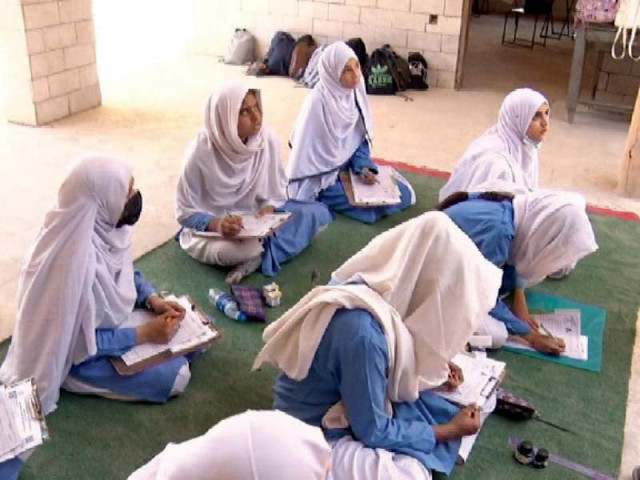Academic failure : Public education system struggles for survival
Poorly implemented changes in departmental structure derail attempts at improving pedagogical methods

As a growing demand for internationally recognised education drives a large segment of the school going population away from the public education system, the recent drop in the annual performance of education boards under the Department of Boards and Universities in Sindh, has only added to its notoriety.
During the past five years of the Pakistan People’s Party (PPP) government in Sindh, education boards listed under the Department of Boards and Universities have gone through a seemingly endless process of transfers, leaving many key positions deprived of permanent officers. The effects of such administrative mismanagement were recently seen in the examination results of these boards in Sindh which showed a decline in the performance of students in their exams.
“The real problem in Sindh is implementation. We have the curriculum and laws in place but without efficiency in implementation, no improvements can be made. And the results of the education boards, seen in the number of candidates passing the exams, will remain poor,” said Sarosh Hashmat Lodhi, Vice Chancellor at the NED University of Engineering and Technology.
Read Move to privatise government schools expedited
According to a report by the NED University, the results for exams conducted by the Department of Boards and Universities observed a downward trend this year, with only 33 per cent candidates passing exams from the Hyderabad Board, 32 per cent from the Mirpurkhas Board, and 25 per cent from the Sukkur and Nawabshah Boards.
In comparison, the passing percentage for students appearing in the examinations conducted by the Federal Board of Intermediate and Secondary Education, the Aga Khan University Examination Board, and the Cambridge Assessment International Education (CAIE) were much better at 66 percent, 80 percent, and 84 per cent respectively.
Critics argue that the root cause of the problem lies in the substandard level of education provided by Sindh boards due to a lack of administrative management. Allegedly, the transfer of the Department of Universities and Boards to the minister nullified any previous efforts made by the administration on the matter of appointment of permanent chairmen for the boards.
Speaking to The Express Tribune on the matter, Universities and Boards Department Secretary Mureed Rahimoon said, “the secretary has many administrative limitations. However, I still tried my best to improve. Despite my hard work, I was vetoed by higher order officials. No improvements have been made in the board ever since. It should be clear that on the orders of the minister of our department, if continuous transfers are made and an ad hoc chairman is removed, then another ad-hoc chairman should be immediately appointed.”
Published in The Express Tribune, September 25th, 2023.


















COMMENTS
Comments are moderated and generally will be posted if they are on-topic and not abusive.
For more information, please see our Comments FAQ